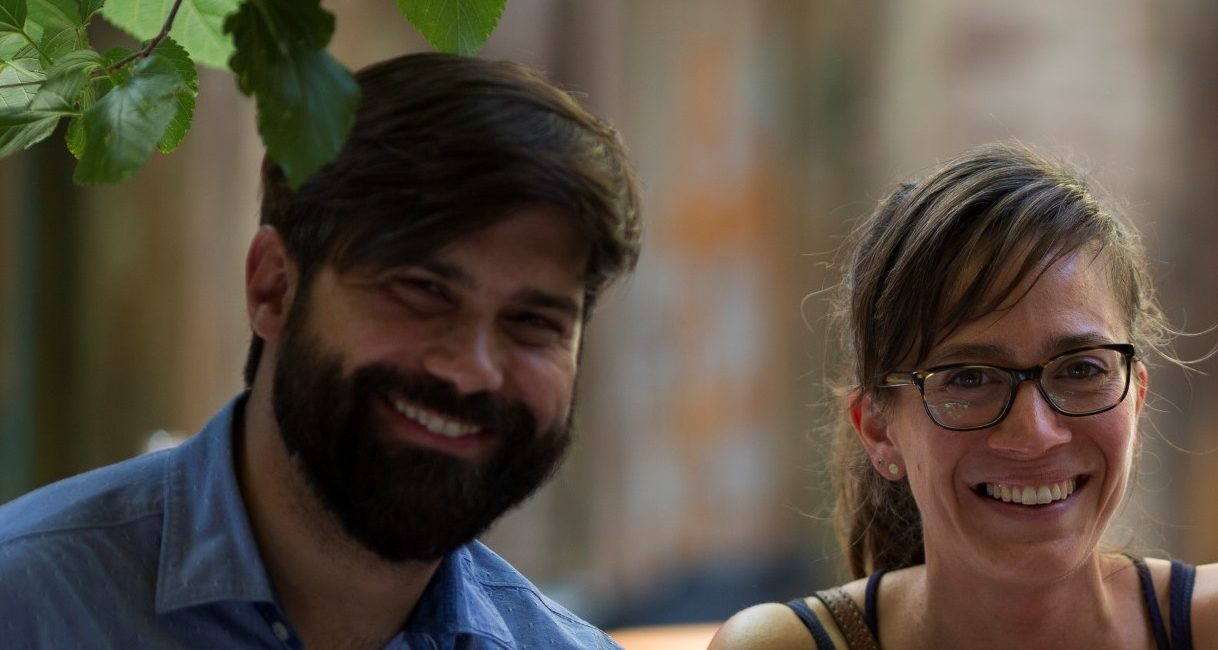First of all, could you tell us very briefly who Loukas Bartatilas is?
I was born in Athens, Greece in 1981. I studied architecture in Greece and completed my master’s in ‘Public art and new artistic strategies’ at the Bauhaus University Weimar (BUW) in Germany. During my studies there, I participated in workshops at the School of the Art Institute of Chicago.
At the moment, I am a PhD Candidate at the BUW, at the department of History and Theory of Architecture, where I research the influence of the historical Bauhaus on modern architecture in Greece. I live in Berlin.
Parallel to my academic activities, and while I was living in Athens, I worked on different projects with the NEON Cultural Foundation and the Department of Civil Society of the City of Athens in the field of social neighbourhood development with a focus on the area of Kypseli. Since I have been living in Berlin, I have worked in the field of cultural exchange for different projects of the Robert Bosch Foundation, the MitOst e.V. and the Goethe Institute.
Between 2016 and 2018 I was one of the four representatives of the Robert Bosch Cultural Managers Network.
You used a travel grant to go to Athens. Can you tell us little more about the purpose of your travel there and the organization you visited?
I was invited by the civil society group ‘I Kypseli mas’ (transl.: ‘Our Kypseli’) to present my projects that I did for the neighbourhood in 2014 and2015. The group works on a volunteer basis and offers a wide range of activities for the residents of the neighbourhood, from Greek courses for immigrants to computer courses for seniors, from public film screenings to group walks and visits to cultural places in the area. Their latest activity has been the creation of a series of lectures about the neighbourhood. They invite artists, directors, and other creatives whose work is based in Kypseli to share with the local residents their views on the area. My lecture was the first event realized as part of the series.
Were there any personal benefits or benefits for the network gained from your stay in Athens?
As I grew up in this neighbourhood and know it very well, I presented these specific projects as part of the bigger historical and social context of the area and the discussion about it. This approach was filled in with other experiences, examples, and solutions that I got from my stay in Berlin. I insisted on the need for citizens’ participation in order to develop the neighbourhood in a sustainable fashion, both in terms of society and the city.
My personal benefit was that although at the beginning of the discussion after the lecture I was ‘criticized’ for keeping my positive perspective on the neighbourhood (and Athens in general, talking about its potential) in times of crisis and public disappointment, at the end of the discussion I left with the feedback that my positivity had inspired participants to become more active and see the area through a new, more positive lens.
Regarding the network, I know that the challenges the city of Athens and their active citizens are facing is not something that is only happening there, but in many other cities of Europe, if not elsewhere. Therefore, the exchange with active groups, the feedback I got, and the local focus informed by European awareness could become useful tools to share with other members who work in the same field, or they might serve as important discussion topics for the network’s future activities.
Did you have the opportunity to meet other members of the network during your stay?
Yes. First of all, many members of the network came to attend the lecture and there we had the chance to discuss future activities in Athens that the network might organize or participate in. In the following days, I had the chance to meet in person many of them again, this time in more friendly and less work-based environs.
And for the end, could you describe your five favourite places in Athens? If someone would like to visit Athens, what is a must see?
I will start with the basics: the visit to the archaeological sites of the Ancient Athenian places, as this is what makes Athens known to the rest of the world and is the thing that comes in mind when someone is talking about the city.
I would also suggest visitors walk and ‘get lost’ in all the small streets of the city centre, and especially to walk through the arcades of the buildings and the local market, where you can get a feeling of the city’s development during the 1960s.
Then, I would suggest visiting the building of the Athens Conservatory, as the unique example of Bauhaus and modern architecture in Greece, built by the architect Despotopoulos, the only Greek student of the Bauhaus – this is my PhD research focus.
As an alternative option, I would suggest visiting the parks of Athens, the National Garden next to the Parliament, the Pedion Areos Park and the Philopappou Hill. Although they are centrally located, they are not part of the daily life of the city; however, they offer visitors the opportunity to explore the Greek nature.
Last but not least, I would of course say to visit the neighbourhood of Kypseli, the focus of my work, if someone wants to see the contemporary challenges of the city and one of the most beautiful pedestrian streets, the Fokionos Negri.
Interview by Ksenija Cockova

